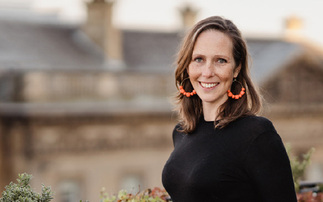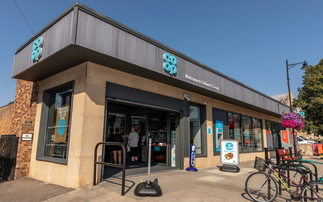Industry Voice: Equans' Jake Fellows explains how the firm is working with UK universities to decarbonise campus buildings
The very central principle of a university is to learn, educate and thrive. Higher education and further education estates are essentially hot beds of knowledge and ambition, and this is perhaps one of our greatest untapped assets when it comes to climate change.
Universities in particular face a lot of challenges on the road to net zero and this is largely due to the complexity and varying age of their estates, and the best way of accurately measuring carbon emissions. Many institutions own multiple campus', halls of residences and residential properties; making it difficult to gauge their carbon footprint and develop roadmaps. It can also be challenging for institutions to decide where to focus their investment effort, with competing priorities for academic and research development, versus their residential estate - as well as the role of the wider private-sector student accommodation market.
Many universities are also faced with outdated on-site energy systems (often gas-based) which leads to inefficient, and now costly, heating infrastructure; and given the size, population, and heat demand on campus, it means universities would benefit more than most from low carbon technologies; but few institutions know where to start.
New research from law firm Shakespeare Martineau and planning consultancy Marrons shows that just one in 10 higher education and further education institutions are ‘very confident' about meeting their decarbonisation targets. More than 130 institutions were surveyed and lack of expertise and knowledge around the matter was identified as one of the biggest barriers for more than a quarter of respondents (28 per cent).
If this is true, with one of the biggest obstacles being knowledge around ‘how' to decarbonise, then we must address how we can develop centres of expertise to tackle this decarbonisation challenge - a challenge which requires every greater focus.
Many institutions have already paved the way, embracing the challenge, seeking funding and sourcing delivery partners to implement these measures; with results that speak for themselves.
This is where there is an opportunity to pay it forward and help shape the future of higher education and the wider net zero agenda.
If universities that have successfully improved their carbon footprint, supported their peers by disclosing key learnings and sound solutions, it would not only accelerate the UK's net zero carbon targets but educate and inspire the leaders of tomorrow - particularly with the opportunity to influence the student and academic base who use these facilities.
The great thing about decarbonising university estates is that it lends itself to teaching. We have worked with universities across the country to not only deliver low carbon technologies - but support with studies, inspire green careers and even offer up live data generated on building and heating performance to support degree studies.
Keele University is a fantastic example of a university committed to the bigger picture. The university pledged to be carbon neutral by 2030 and tasked Equans with delivering and operating a wind, solar and battery storage facility on campus which will generate up to 50 per cent of the university's power.
Now complete, with more than 12,000 solar panels on site, the university happily hosts field tours with other universities looking at ways they can cut carbon emissions and actively supports this agenda alongside Equans as we seek to educate other institutions and showcase solutions.
We believe that higher education customers can achieve more sustainable outcomes, by working in long-term partnership arrangements. We have a significant track-record in the development and execution of partnership structures - working in conjunction with institutions, long-term infrastructure investors and lenders. This way the university, the funder and constructor are all sharing risk and taking a long-term investment in the project; giving, the universities in particular, peace of mind and the drive to push forward with their net zero ambitions.
The University of Leicester is one of Equan's biggest and most successful schemes in this sector. We worked with the university alongside our long-term equity partners, Equitix, to deliver 1,164 new low carbon student homes, refurbished a grade II listed building, created a 500-space multi-storey car park; as well as a 9,000m2 teaching centre. Each partner had a stake in the project and a vested interest in the success of the scheme.
We only recently completed our work at Leicester and the early feedback has been fantastic - with students proud of their sustainable campus.
You cannot underestimate the passion of students around climate change and what motivates their decision-making process when selecting somewhere to study; with students actively referencing the quality and sustainability of facilities as a key determinant in their choice of university.
The Shakespeare Martineau research also asked prospective students what influences their choices and more than three quarters identified use of green energy and sustainability being contributing factors.
This speaks volumes about the mindset of this generation and the influence they may have in the fight against climate change, so there is an untapped opportunity here to put higher education estates at the forefront of this agenda.
Assessing the carbon footprint of a university can be complex but it's not unattainable; and most importantly - it's not necessary to address the whole campus at once. Getting started is often the biggest challenge but once a roadmap and approach is developed, it's easier to build a longer-term plan for each university estate.
We have worked with universities across the country to implement a whole host of measures, from air source heat pumps, ground source heat pumps, solar panels, EV charge points and smart building solutions, as well as more intrusive and fundamental retrofit and fabric upgrade works. Together, these steps make all the necessary difference.
While the bigger picture challenge is decarbonisation, the smaller challenge is education. Universities that have successfully applied decarbonisation techniques, have the tools at their disposal to spearhead significant progress towards the UK's net zero targets by sharing success and encouraging their peers to take their own action.
We are all working towards a common purpose and by passing on knowledge and engaging students along the way - we can revolutionise the sector and inspire a new generation to champion this agenda.
Jake Fellows is managing director (central region) for Equans UK & Ireland.
The Green Campus Report can be viewed by clicking here.
This article is sponsored by Equans.







